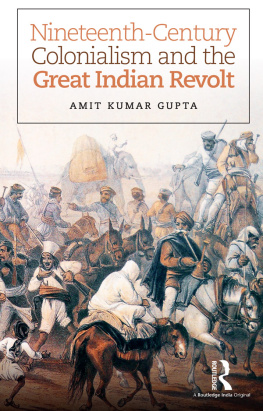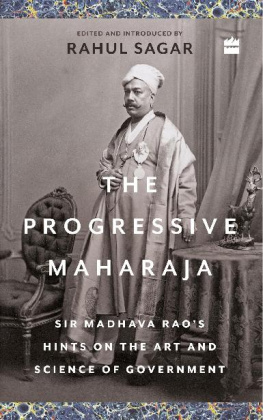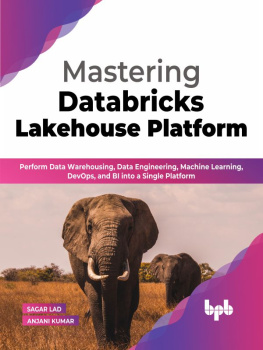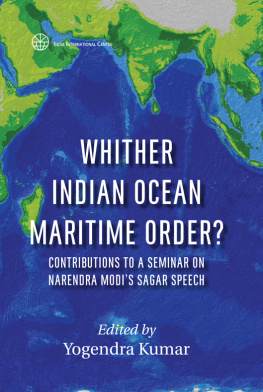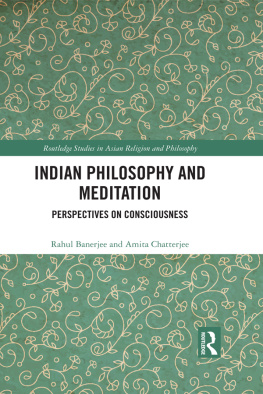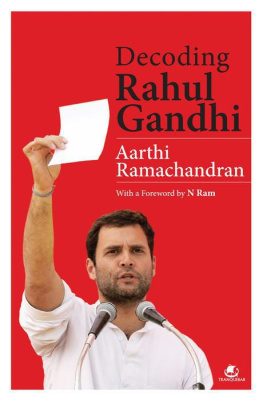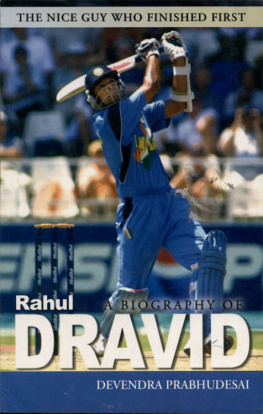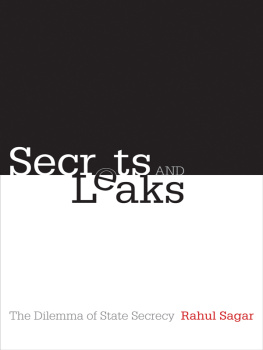Rahul Sagar - To Raise a Fallen People: The Nineteenth-Century Origins of Indian Views on International Politics
Here you can read online Rahul Sagar - To Raise a Fallen People: The Nineteenth-Century Origins of Indian Views on International Politics full text of the book (entire story) in english for free. Download pdf and epub, get meaning, cover and reviews about this ebook. year: 2022, publisher: ColumbiaUP, genre: Politics. Description of the work, (preface) as well as reviews are available. Best literature library LitArk.com created for fans of good reading and offers a wide selection of genres:
Romance novel
Science fiction
Adventure
Detective
Science
History
Home and family
Prose
Art
Politics
Computer
Non-fiction
Religion
Business
Children
Humor
Choose a favorite category and find really read worthwhile books. Enjoy immersion in the world of imagination, feel the emotions of the characters or learn something new for yourself, make an fascinating discovery.

- Book:To Raise a Fallen People: The Nineteenth-Century Origins of Indian Views on International Politics
- Author:
- Publisher:ColumbiaUP
- Genre:
- Year:2022
- Rating:4 / 5
- Favourites:Add to favourites
- Your mark:
- 80
- 1
- 2
- 3
- 4
- 5
To Raise a Fallen People: The Nineteenth-Century Origins of Indian Views on International Politics: summary, description and annotation
We offer to read an annotation, description, summary or preface (depends on what the author of the book "To Raise a Fallen People: The Nineteenth-Century Origins of Indian Views on International Politics" wrote himself). If you haven't found the necessary information about the book — write in the comments, we will try to find it.
Rahul Sagar: author's other books
Who wrote To Raise a Fallen People: The Nineteenth-Century Origins of Indian Views on International Politics? Find out the surname, the name of the author of the book and a list of all author's works by series.
To Raise a Fallen People: The Nineteenth-Century Origins of Indian Views on International Politics — read online for free the complete book (whole text) full work
Below is the text of the book, divided by pages. System saving the place of the last page read, allows you to conveniently read the book "To Raise a Fallen People: The Nineteenth-Century Origins of Indian Views on International Politics" online for free, without having to search again every time where you left off. Put a bookmark, and you can go to the page where you finished reading at any time.
Font size:
Interval:
Bookmark:
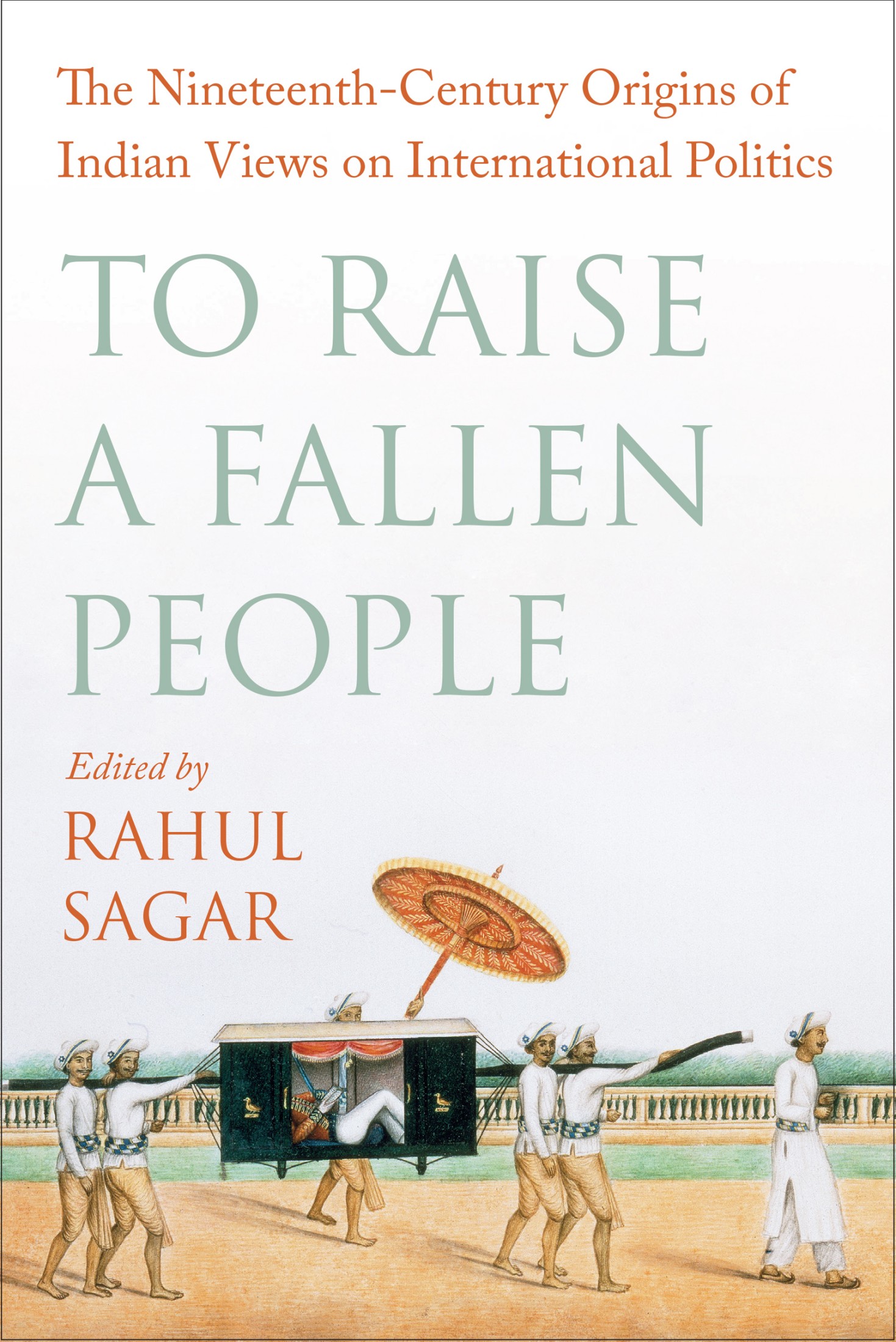
To Raise a Fallen People
To Raise a Fallen People
THE NINETEENTH-CENTURY ORIGINS OF INDIAN VIEWS ON INTERNATIONAL POLITICS
Edited by Rahul Sagar
Columbia University Press
New York

Columbia University Press
Publishers Since 1893
New YorkChichester, West Sussex
cup.columbia.edu
Copyright 2022 Columbia University Press
All rights reserved
E-ISBN 978-0-231-55648-4
Library of Congress Cataloging-in-Publication Data
Names: Sagar, Rahul, editor.
Title: To raise a fallen people : the nineteenth century origins of Indian views of the world / [edited by Rahul Sagar].
Description: [New York, New York] : Columbia University Press, [2022] | Includes bibliographical references and index.
Identifiers: LCCN 2021048824 (print) | LCCN 2021048825 (ebook) | ISBN 9780231206440 (hardback) | ISBN 9780231206457 (trade paperback)
Subjects: LCSH: IndiaForeign relations17651857. | IndiaForeign relations18571919. | IndiaPolitics and government19th century. | IndiaIntellectual life19th century.
Classification: LCC DS447 .T63 2022 (print) | LCC DS447 (ebook) | DDC 320.954dc23/eng/20220114
LC record available at https://lccn.loc.gov/2021048824
LC ebook record available at https://lccn.loc.gov/2021048825
A Columbia University Press E-book.
CUP would be pleased to hear about your reading experience with this e-book at .
Cover design: Gavin Morris
Cover image: Shaykh Muhammad Amir, Palanquin Carriers, 18201850.
Courtesy of the Peabody Essex Museum, Salem, Massachusetts.
For Mia and Sophie
Peoples always feel the effects of their origins. The circumstances that accompanied their birth and served to develop them influence the entire course of the rest of their lives. If it were possible for us to go back to the origins of societies and to examine the first monuments of their history, I doubt not that we could discover in them the first cause of prejudices, habits, dominant passions, of all that finally composes what is called national character. Thus would be explained the destiny of certain peoples that an unknown force seems to carry them along toward. But until now the facts have been wanting for such study; the spirit of analysis has come to nations only as they aged, and when at last they thought of contemplating their cradle, time had already enveloped it in a cloud, ignorance and pride had surrounded it with fables behind which the truth lies hidden.
Alexis de Tocqueville, Democracy in America, 1.1.2
This volume has been nearly two decades in the making. Its origin lies in the curious vitality that India began to exhibit toward the close of the twentieth century. A remarkable series of eventsthe liberalization of the economy, the development of nuclear weapons, the forging of new diplomatic relationships, the embrace of globalizationappeared to herald a revolution. The renunciatory ideals of recent decades were being displaced, observers declared, by a more pragmatic worldview. But, before long, the very same observers were expressing frustration at signs of continued inwardness and apathy. From this uneven experience arose a question of some importance: Should we expect a rising India to behave as great powers doby concertedly developing its capabilities and advancing its national interestsor not? Seeking to understand the sources of Indias conduct, I set out to investigate what role Indians thought their country should play on the world stage.
How to conduct such an investigation was not obvious. Whom exactly to study? In which time period? What documents to examine? Little had been published on the role of ideas since Bimal Prasads pioneering The Origins of Indian Foreign Policy, which appeared in 1962. Archives seemed the natural starting point. But government documents on grand strategy were classified, and I was told, more than once, that debate on this subject was conducted in person and not on paper. Therefore, I began interviewing bureaucrats and ministers with a view to identifying ideas important to them. But busy officials and wary retirees were not always willing or able to speak candidly. Those who did volunteer their views struggled to elaborate them at length. The generalities they voiced suggested that they were influenced not by some precise doctrine but by ideas in the wider milieu. Hence, I began trying to discern broad intellectual currents in public life. This was not a straightforward process either. I searched for polls or surveys, but sources like these were hard to come by at the time. The little data available was unreliable and topical rather than conceptual. It did not, therefore, illuminate the ideas informing public attitudes.
At an impasse, I discussed the matter with J. N. Dixit, the cerebral former foreign secretary (and later national security advisor). He suggested examining what leading figures immediately before and after Independence had said about international politics (which later became the subject of his Makers of Indias Foreign Policy, a valuable collection of short biographies). I was reassured by his stress on the impact that ideas had had on decision-makers, but felt unsure about focusing on a few prominent figures, especially those from the Congress era. The churning unleashed by the million mutinies underway suggested that Indias future political leadership would emerge from new and varied segments of society. A close study of the grandees of recent decades would shed light on their doings, but it would not illuminate what had come before or what was to come after.
Still mulling over the problem, I spoke with Jairam Ramesh, then in his avatar as a celebrated technocrat. A voracious reader, he happened to be in the middle of Walter Russell Meads Special Providence, which outlined the competing traditionsHamiltonian, Jeffersonian, Jacksonian, and Wilsonianthat had shaped American foreign policy. Why not do something similar in the Indian context, he suggested. I found the proposition appealing, but I was not persuaded by the personification of ideals because leaders typically only channel streams of thought that long precede them. As I searched for a way to trace these broader currents, Kanti Bajpai published his groundbreaking essay Indias Strategic Culture, which outlined the schools of thought he saw as shaping Indian conduct. Inspired by Bajpais example, but differing from him on the characterization of the dominant ideals of the era, I eventually wrote my first essay on the subject, State of Mind: What Kind of Power Will India Be?
Often when preparing a publication, one learns how much one does not know. By the time my first essay was complete in 2008, I felt I had made an error in focusing solely on the post-Independence period. In effect, I had assumed that Indians only began thinking about international politics after 1947. This was in line with the prevailing view, voiced by George Tanham in his influential Indian Strategic Thought, and seconded by colossuses like K. Subrahmanyam and Jaswant Singh, that there was little evidence that Indians had previously thought coherently and systematically about national strategy. As Subrahmanyam observed in Shedding Shibboleths, When Tanham put forward his thesis in a seminar in Delhi in February 1994 to an audience comprising a large number of retired defence and civilian officials and academics, the majority contested his thesis. Did not India have Chanakya as a strategic thinker?, they asked. True indeed, but Chanakya lived some twenty-three centuries ago. What of the centuries after him?
Font size:
Interval:
Bookmark:
Similar books «To Raise a Fallen People: The Nineteenth-Century Origins of Indian Views on International Politics»
Look at similar books to To Raise a Fallen People: The Nineteenth-Century Origins of Indian Views on International Politics. We have selected literature similar in name and meaning in the hope of providing readers with more options to find new, interesting, not yet read works.
Discussion, reviews of the book To Raise a Fallen People: The Nineteenth-Century Origins of Indian Views on International Politics and just readers' own opinions. Leave your comments, write what you think about the work, its meaning or the main characters. Specify what exactly you liked and what you didn't like, and why you think so.

